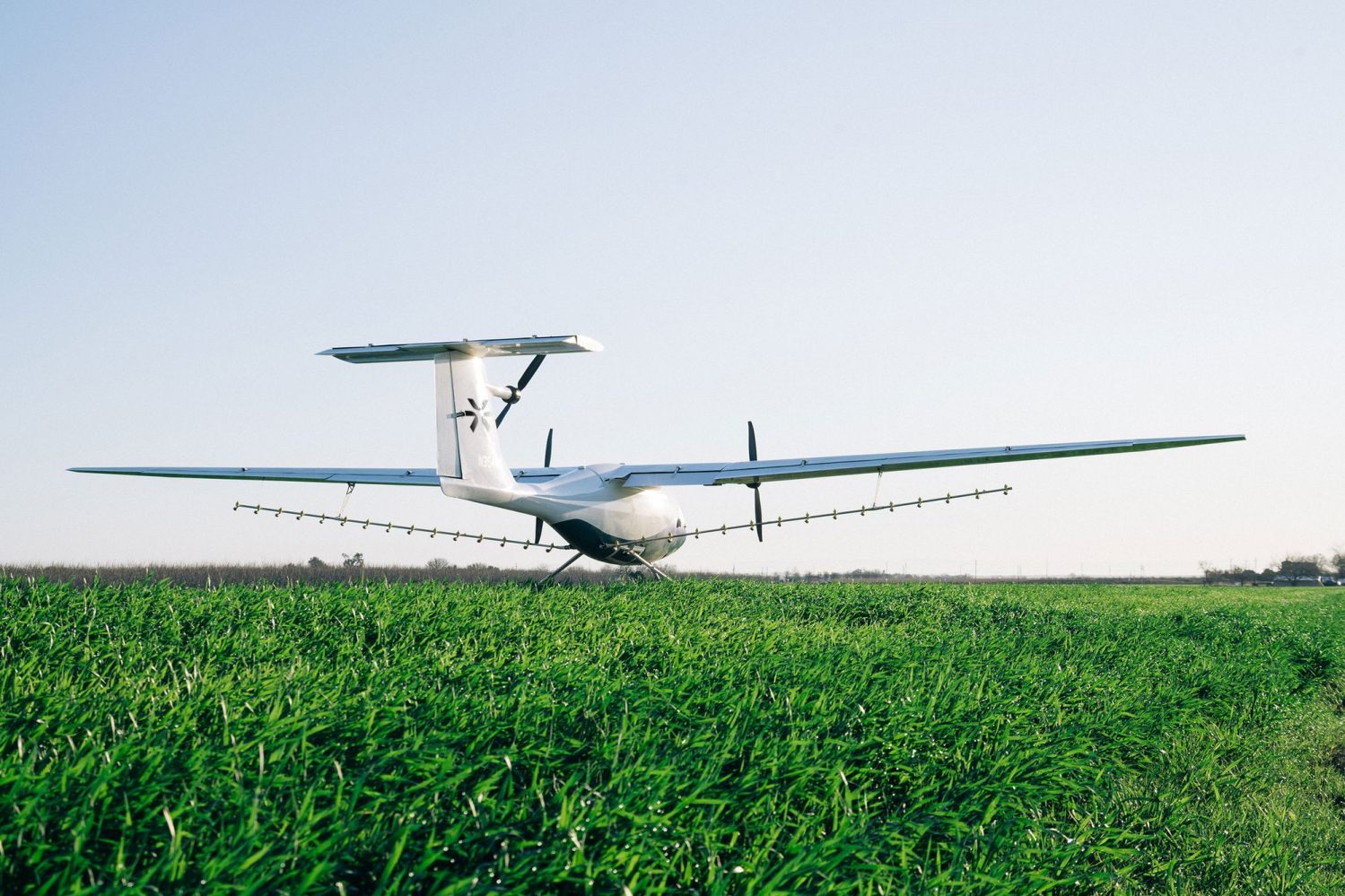
California maker of large-scale special purpose Pelican drones, Pyka, has received Federal Aviation Administration (FAA) approval to operate its highly automated agricultural UAV for crop spraying missions – an achievement that may facilitate the company’s planned deployment of its cargo delivery craft as well.
Oakland-based Pyka said it had received FAA authorization for its Pelican Spray UAVs for crop dusting services across the US. The company says the authorization clears the way for deployment of “the largest-ever highly-automated electric drone in the United States,” which it promises will speed the process and improve the precision of crop dusting work at the nation’s farms.
The Pyka Pelican Spray weighs in at 1,125 lb., and has already racked up considerable flight time over agricultural holdings in Costa Rica, Honduras, and Brazil. The company says the heavy toting drone can carry up to 540 lb. (70 gallons) of spray liquid, and cover up to 240 acres of crops per hour.
Onboard tech affords the UAV increased precision over traditional aircraft, Pyka says, reducing both chemical usage costs and environmental impact to farmlands and surrounding communities.
Meantime, deployment of the automated drone virtually eliminates all risk of injury or fatalities due to crashes. According to official stats, piloted crop spraying planes were involved in 54 accidents in 2020 alone, resulting in 13 deaths.
For those reasons, observers say, the FAA green light of the Pyka Pelican Spray drone opens the door for improved safety and greater efficiency of frequent aerial crop treatment at US farms.
“This is a significant win for Pyka and the agricultural community they serve,” said Lisa Ellman, chair of Hogan Lovells’ Uncrewed Aircraft System Practice, and a leading policy advocate for the commercial UAV industry. “Among other safety and environmental benefits, the use of highly-automated UAS like the Pelican to perform potentially hazardous aircraft operations can reduce the number of pilot fatalities that occur each year in the aerial agricultural spraying industry.”
Securing FAA approval of Pyka’s agricultural drone will also undoubtedly aid the company in obtaining certification of its Pelican Cargo drone from regulators in the US around the world. Earlier this year, the company signed a breakthrough deal with UK-based drone delivery firm Skyports, which plans to use the craft for outsize packages and large volume payloads that the smaller craft it uses in different countries can’t carry.
Read: Skyports adds Pyka heavy payload delivery drones to its fleet
Awaiting continued progress toward that freight activity objective, however, Pyka CEO Michael Norcia celebrated the Pelican Spray’s FAA approval as a boost for the company, client farmers, and their surrounding communities.
“We are beyond thrilled to celebrate this commercial approval and regulatory milestone,” said Norcia. “Pyka’s aircraft provide an essential tool for protecting crops, unlocking cost savings for growers, and reducing our impact on the environment. This commercial approval is the first step in enabling us to generate massive value for growers in the US, Latin America, and other markets we operate in, while also laying the operational and regulatory groundwork for eventual scaling into uncrewed cargo operations worldwide.”
FTC: We use income earning auto affiliate links. More.



Comments